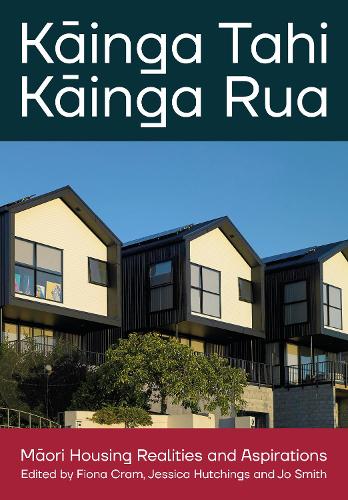
Kainga Tahi, Kainga Rua: Maori Housing Realities and Aspirations
(Paperback)
Publishing Details
Kainga Tahi, Kainga Rua: Maori Housing Realities and Aspirations
By (Author) Fiona Cram
Edited by Jessica Hutchings
Edited by Jo Smith
Bridget Williams Books
Bridget Williams Books
21st November 2022
New Zealand
Classifications
General
Non Fiction
363.59999442
Physical Properties
Paperback
352
Width 170mm, Height 240mm
Description
Kainga Tahi, Kainga Rua surveys the many ways whanau, hapu and iwi experience housing and home across Aotearoa New Zealand. Arriving at a time of promise and change for Maori housing, these stories of home and belonging provide inspiration for the future. Narratives of resilience open the book, showing how the broad currents of colonisation, social and economic history, and land and law changes have affected housing through time. Personal, heartfelt discussions of the relationships between housing, home and identity highlight contemporary challenges. A rich set of papakainga housing solutions, accompanied by illustrations, reveals new pathways ahead. Documenting these contemporary Maori housing narratives in their rural, urban and big-city contexts offers a sweeping overview of what 'home' can mean for tangata whenua in the twenty-first century.
Author Bio
Fiona Cram (Ngati Pahauwera) is the founder of Katoa Ltd, a small company who specialises in Kaupapa Maori research, evaluation and training. She has a PhD in social and developmental psychology from the University of Otago. She has lectured in Social Psychology and has been a Senior Research Fellow within IRI (the International Research Institute of Maori and Indigenous Education), at the University of Auckland. Jessica Hutchings (Ngai Tahu, Ngati Huirapa, Gujarati) is a Kaupapa Maori research leader trained in the fields of environmental and Indigenous studies. She is the Director Maori of the Building Better Homes Towns and Cities National Science Challenge. She has a PhD in environmental studies and completed a post-doctoral fellowship in Maori health research. Jo Smith (Kai Tahu, Kati Mamoe, Waitaha) is a senior lecturer at Te Herenga Waka Victoria University of Wellington. Her research examines the socio-political power of media with a primary focus on how colonial histories inform contemporary media technologies, institutions, aesthetics and practices.
